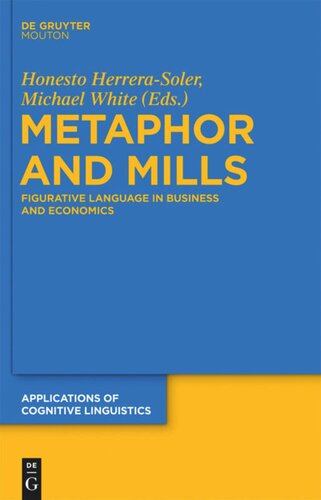

Most ebook files are in PDF format, so you can easily read them using various software such as Foxit Reader or directly on the Google Chrome browser.
Some ebook files are released by publishers in other formats such as .awz, .mobi, .epub, .fb2, etc. You may need to install specific software to read these formats on mobile/PC, such as Calibre.
Please read the tutorial at this link: https://ebookbell.com/faq
We offer FREE conversion to the popular formats you request; however, this may take some time. Therefore, right after payment, please email us, and we will try to provide the service as quickly as possible.
For some exceptional file formats or broken links (if any), please refrain from opening any disputes. Instead, email us first, and we will try to assist within a maximum of 6 hours.
EbookBell Team

5.0
58 reviewsWhile the role of metaphor in economics and business has produced multiple research articles, no comprehensive book-length study has yet appeared. The present book is a timely attempt to fill this gap, giving a global coverage of the role of metaphor in business and economics. It spans time (from Classical Greece to the current business network meeting-room), space (from Europe through the Americas to Asia), cultures and languages (from continental European languages, Brazilian Portuguese to Chinese).
The theoretical grounding of the book is the Conceptual Theory of Metaphor taken in a dynamic sense as evolving with on-going research. The theory is thus used, adapted and refined in accordance with the evidence provided. Metaphor is shown to be theory constitutive in the elaboration of economic thinking down through the ages while, at the same time, the emphasis on evidence open to historical, cross-cultural and cross-linguistic considerations align with the current notion of situatedness.
The book is a rich source of information for researchers and students in the fields of Metaphor Studies, Economics, Discourse Analysis, and Communication Studies, among others.